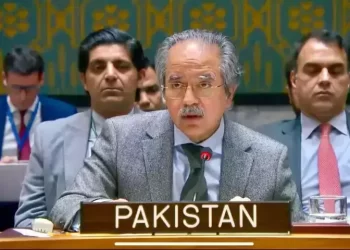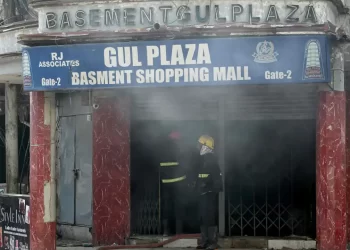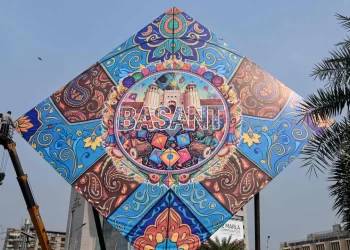As Lahore battles worsening air quality due to dense seasonal smog, the Punjab government has enacted stringent restrictions in pollution-heavy areas of the city. This “green lockdown” aims to curb air pollution by targeting high-emission activities and sources in specific hotspots.
The directive, issued Wednesday, mandates the closure of marriage halls and marquees by 10 p.m., while banning Ching-chi rickshaws entirely in these areas. The measures follow recent data indicating a severe spike in Lahore’s Air Quality Index (AQI), which reached an alarming level of 532 on Monday morning. Such high AQI levels indicate hazardous air, especially as winter approaches, when cold air traps pollutants close to the ground.
Areas and Restrictions Covered in the Lockdown
According to the notification, restrictions will be enforced across key high-traffic and densely populated areas in Lahore. These include Davis Road, Egerton Road, Durand Road, Kashmir Road, Abbott Road from Shimla Hill to Gulistan Cinema, Empress Road from Shimla Hill to Railway Headquarters, and Queen Mary Road from Durand Road to Allama Iqbal Road. These regions have been identified as pollution hotspots due to high levels of construction dust, vehicle emissions, and other sources of air contaminants.
Bans on Construction and High-Emission Activities
As part of the green lockdown, the government has ordered an immediate halt to all construction activities in these targeted areas. Ching-chi rickshaws, known for their considerable emissions, have been prohibited, and commercial generators are also barred from use. The aim is to reduce pollutants that contribute to the dense smog enveloping the city.
Furthermore, restrictions have been placed on open-air cooking and food stalls that use charcoal, coal, or wood, as these emit significant amounts of smoke and particulates. Food outlets that lack proper emission control systems will not be allowed to operate after 8 p.m., and dry sweeping—a practice known to raise dust levels—has also been banned.
Changes for Offices and Traffic Regulations
In addition to public and commercial activity restrictions, the notification advises that government and private offices in the affected areas switch to a partial remote work policy, with 50% of staff working from home on a rotational basis. This shift is intended to minimize traffic and lower emissions associated with commuting.
To further reduce vehicular pollution, the government has imposed strict monitoring of heavy transport vehicles entering the lockdown zones. Special teams will inspect each vehicle, and those emitting black smoke will be barred from entry. Parking will also be restricted according to guidelines issued by the Chief Traffic Officer, in an effort to limit congestion and reduce idling emissions.
Enforcement and Immediate Action
The government has stated that these orders are effective immediately, with strict enforcement to be undertaken by relevant authorities. Violators of the green lockdown measures will face legal action, according to the official notification.
This comprehensive lockdown represents the government’s proactive approach to countering Lahore’s persistent winter smog, which has become a growing public health issue. Each year, the city experiences a surge in respiratory illnesses and visibility problems due to worsening air quality as cooler weather traps pollutants close to the surface.
Through these measures, the Punjab government aims to mitigate the immediate impact of smog and safeguard the health of Lahore’s residents. As enforcement begins, officials are urging citizens to comply with the restrictions for a cleaner and healthier environment in the city.
The post Green Lockdown Imposed in Lahore: Here are the Details! appeared first on Startup Pakistan.









